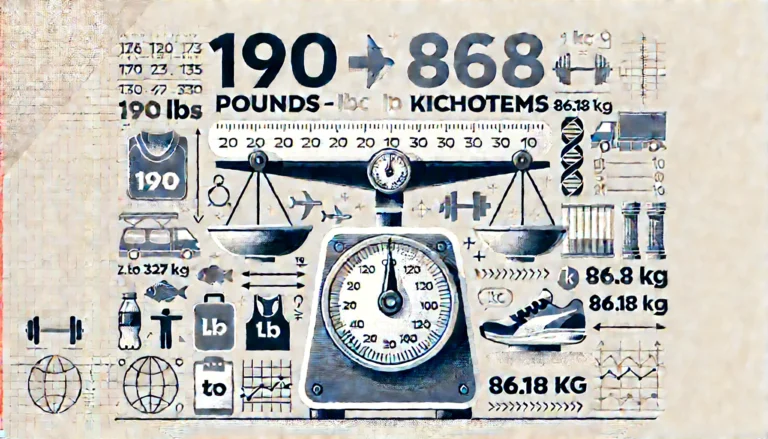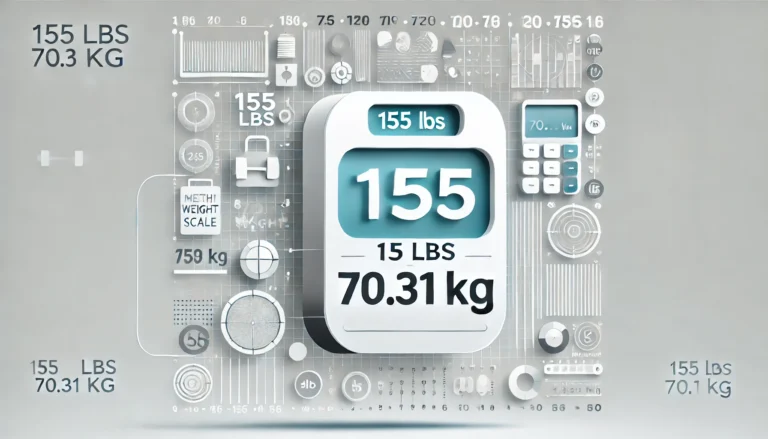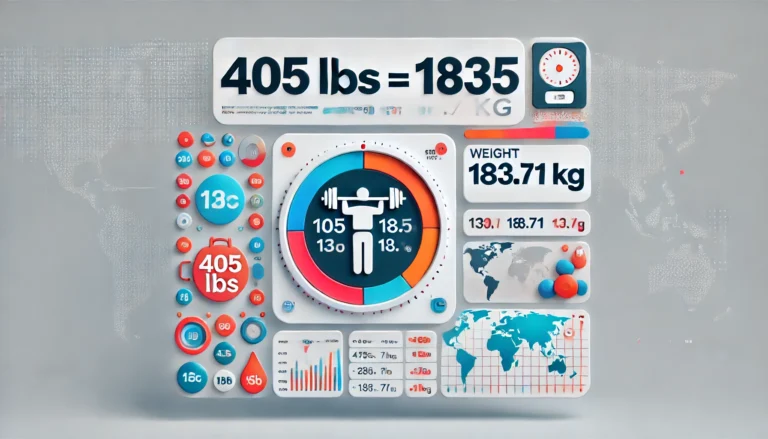
Introduction
When you come across the measurement “0.95 kg” and need to convert it to pounds, you may wonder how to go about the calculation. Converting kilograms to pounds is a common task, especially in countries where the imperial system is used for weight. In this article, we will break down the process of converting 0.95 kg to pounds, making it easy for you to understand and apply in various real-life scenarios.
The Conversion Formula
To begin with, it’s essential to know the conversion formula. The relationship between kilograms and pounds is straightforward:
1 kilogram (kg) = 2.20462 pounds (lbs)
Thus, to convert kilograms to pounds, you simply multiply the number of kilograms by 2.20462. For instance:
0.95 kg × 2.20462 = 2.09439 lbs
Therefore, 0.95 kg is approximately 2.09 pounds. This is the basic calculation to convert 0.95 kg to pounds.
Why Convert Kilograms to Pounds?
While kilograms are used worldwide as the standard for measuring weight, the pound is commonly used in the United States and some other countries. Whether you’re looking at nutritional labels, travel luggage weights, or even personal health metrics, you may need to make conversions between these two units of measurement. Understanding how to convert kg to lbs can be especially useful when dealing with international shipping or recipes that list ingredients in different systems.
Conversion Table for Kilograms to Pounds
To make your conversions easier, here’s a small table for quick reference:
| Kilograms (kg) | Pounds (lbs) |
|---|---|
| 0.50 kg | 1.10231 lbs |
| 0.75 kg | 1.65347 lbs |
| 1.00 kg | 2.20462 lbs |
| 2.00 kg | 4.40924 lbs |
| 5.00 kg | 11.0231 lbs |
This table can serve as a handy tool if you need to perform conversions quickly without always using the formula.
Practical Applications of Kilograms to Pounds Conversion
Converting kilograms to pounds is useful in various everyday scenarios:
- Health and Fitness: Many weight scales, particularly in the U.S., measure weight in pounds. If you’re following an international fitness program, understanding conversions will help you track progress.
- Cooking and Nutrition: Some recipes or nutritional information may be listed in kilograms, while others are in pounds. Converting between the two allows for accurate measurements when preparing meals.
- Travel: If you are traveling and need to manage luggage weight restrictions, knowing how to convert kilograms to pounds ensures you don’t exceed weight limits.
- Shipping and Logistics: Many shipping companies and international trade require weights to be converted. For example, when sending packages abroad, the weight may need to be in pounds instead of kilograms.
Converting Other Measurements
While this article focuses on the conversion of 0.95 kg to pounds, you may need to convert other units of mass as well. To convert kilograms to ounces, grams, or stones, the basic principle remains the same: use the corresponding conversion factor.
- Kilograms to Ounces: 1 kg = 35.274 ounces
- Kilograms to Grams: 1 kg = 1,000 grams
- Kilograms to Stones: 1 kg = 0.15747 stones
For example, if you wanted to convert 0.95 kg to ounces, you would use the following:
0.95 kg × 35.274 = 33.518 ounces
Using Conversion Apps and Tools
In today’s digital age, numerous apps and websites can help you quickly convert between different units of measurement. Tools like Google’s built-in converter or specific apps designed for unit conversion make these tasks even more straightforward. If you find yourself often converting between units, these tools can save you time and ensure accuracy.
Conclusion
In conclusion, converting 0.95 kg to pounds is simple and only requires multiplying by the conversion factor of 2.20462. This means that 0.95 kg equals approximately 2.09 pounds. Understanding this conversion is valuable in various situations, from daily activities like cooking and health management to more specialized tasks such as international shipping. By utilizing conversion tables, apps, and online tools, you can easily and accurately convert weights between kilograms and pounds.




